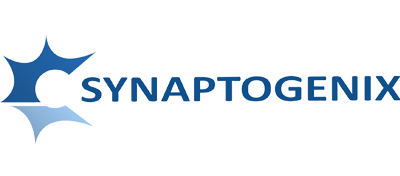Neurotrope Announces Top-line Results From Confirmatory Phase 2 Study of Bryostatin-1 in Moderate to Severe Alzheimer’s Disease
NEW YORK, Sept. 9, 2019 /PRNewswire/ — Neurotrope, Inc. (Nasdaq: NTRP), a clinical-stage biopharmaceutical company developing novel therapies for neurodegenerative diseases, including Alzheimer’s disease (AD), today announced that its confirmatory Phase 2 study of Bryostatin-1 in moderate to severe AD did not achieve statistical significance on the primary endpoint, which was change from baseline to Week 13 in the Severe Impairment Battery (SIB) total score.
An average increase in SIB total score of 1.3 points and 2.1 points was observed for the Bryostatin-1 and placebo groups, respectively, at Week 13. There were multiple secondary outcome measures in this trial, including the changes from baseline at Weeks 5, 9 and 15 in the SIB total score. No statistically significant difference was observed in the change from baseline in SIB total score between the Bryostatin-1 and placebo treatment groups.
“We are disappointed in the topline results from the confirmatory Phase 2 study,” said Dr. Charles S. Ryan, Neurotrope’s Chief Executive Officer. “Having just received the data, we are conducting a full review to determine potential next steps and will provide an update of our plans when appropriate. We sincerely thank the patients, physicians, study coordinators and the entire Neurotrope team for their support of this novel study.”
About the Confirmatory Phase 2 Study
The confirmatory Phase 2 multicenter trial was designed to assess the safety and efficacy of Bryostatin-1 as a treatment for cognitive deficits in patients with moderate to severe AD — defined as a Mini Mental State Exam 2 score of 4-15 – who are not currently taking memantine. Patients were randomized 1:1 to be treated with either Bryostatin-1 20μg or placebo, receiving 7 doses over 12 weeks. Patients on memantine, an NMDA receptor antagonist, were excluded unless they had been discontinued from memantine treatment for a 30-day washout period prior to study enrollment. The primary efficacy endpoint was the change in the SIB score between the baseline and week 13. Secondary endpoints included repeated SIB changes from baseline SIB at weeks 5, 9, 13 and 15.
About Neurotrope
Neurotrope is a clinical-stage biopharmaceutical company working to develop novel therapies for neurodegenerative diseases, including Alzheimer’s disease (AD).
In addition to the Company’s Phase 2 trial of Bryostatin-1 in advanced AD, Neurotrope has also conducted preclinical studies of Bryostatin-1 as a potential treatment for rare diseases and brain injury, including Fragile X syndrome, multiple sclerosis, stroke, Niemann-Pick Type C disease, Rett syndrome, and traumatic brain injury. The U.S. Food and Drug Administration has granted Orphan Drug Designation to Neurotrope for Bryostatin-1 as a treatment for Fragile X syndrome. Bryostatin-1 has already undergone testing in more than 1,500 people in cancer studies, thus creating a large safety data base that will further inform clinical trial designs.
Please visit www.neurotrope.com for further information.
Forward-Looking Statements
Any statements contained in this press release that do not describe historical facts may constitute forward-looking statements. These forward-looking statements include statements regarding the Phase 2 study and further studies, and continued development of use of Bryostatin-1 for AD and other cognitive diseases. Such forward-looking statements are subject to risks and uncertainties and other influences, many of which the Company has no control over. There can be no assurance that the clinical program for Bryostatin-1 will be successful in demonstrating safety and/or efficacy, that we will not encounter problems or delays in clinical development, or that Bryostatin-1 will ever receive regulatory approval or be successfully commercialized. Actual results and the timing of certain events and circumstances may differ materially from those described by the forward-looking statements as a result of these risks and uncertainties. Additional factors that may influence or cause actual results to differ materially from expected or desired results may include, without limitation, the Company’s inability to obtain adequate financing, the significant length of time associated with drug development and related insufficient cash flows and resulting illiquidity, the Company’s patent portfolio, the Company’s inability to expand its business, significant government regulation of pharmaceuticals and the healthcare industry, lack of product diversification, availability of the Company’s raw materials, existing or increased competition, stock volatility and illiquidity, and the Company’s failure to implement its business plans or strategies. These and other factors are identified and described in more detail in the Company’s filings with the Securities and Exchange Commission, including the Company’s Annual Report on Form 10-K for the year ended December 31, 2018, and Quarterly Report on Form 10-Q for the quarter ended June 30, 2019. The Company does not undertake to update these forward-looking statements.
Contact information:
Investors and Media
Sam Martin and Ryan Baker
Argot Partners
212-600-1902
Public Relations
Susan Roberts
sr@roberts-communications.com
202-779-0929








